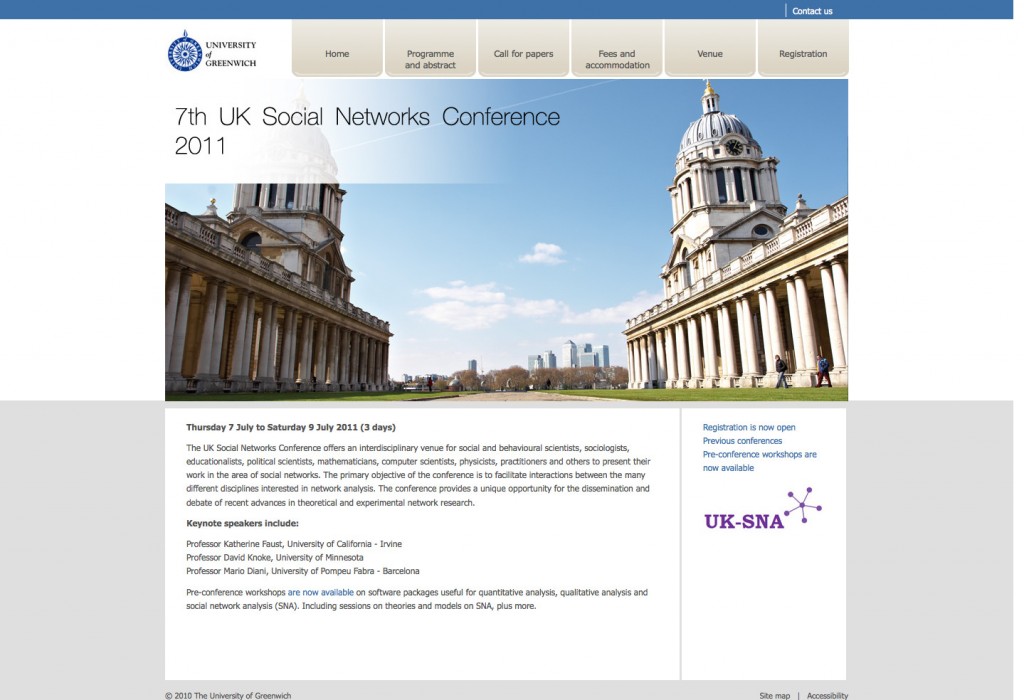Le sociologue Antonio Casilli, auteur de Les liaisons numériques. Vers une nouvelle sociabilité ? (Ed. du (Seuil), interviendra à l’occasion du colloque UKSNA 2011 – United Kingdom Social Network Analysis pour présenter son projet sur les troubles de conduites alimentaires dans les réseaux sociaux. La présentation qui a pour titre Eating disorders in the social web: A personal network approach aura lieu le 8 juillet 2011 à 14h à l’Université de Greenwich, Londres. Le programme est téléchargeable ici.
Online websites, blogs and forums advocating anorexia nervosa and bulimia nervosa (“pro-ana” and “pro-mia” in web jargon) have attracted much media attention in the last decade. While offering emotional and practical support to sufferers, some of them have gone as far as vindicating eating disorders as a lifestyle and even a choice, thereby openly challenging standard medical and psychological discourse. Despite a growing scientific literature on the topic (Casilli et al. 2012), the extent to which participation in pro ana-mia forums, blogs and online social networking sites affect behaviours is still unclear. It also remains to be seen whether ties formed in online ana-mia communities significantly differ from offline forms of sociability such as those traditionally witnessed among school mates, family members, neighbours, etc. In particular, there is an urgent need to address the question of whether online and offline social ties differentially affect health-related behaviours, so as to devise suitable forms of policy intervention. The proposed paper presentation sets out to study the role of online and offline social networks in the spread and maintenance of eating disorders. It is based on an online survey of members of ana-mia communities aiming to elicit their networks of ties in conjunction with behavioural attributes – in particular eating habits, health status and IT usage. Analysing personal networks in this population aims to gain insight into its relational structure, how it is favourable to social influence, and therefore to spread of attitudes, beliefs and behaviours.
